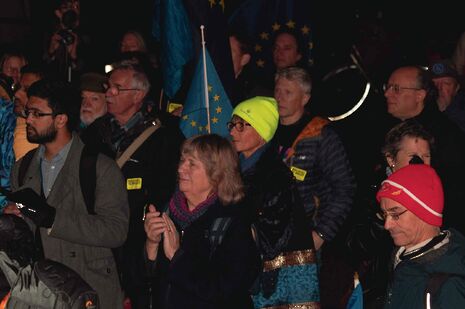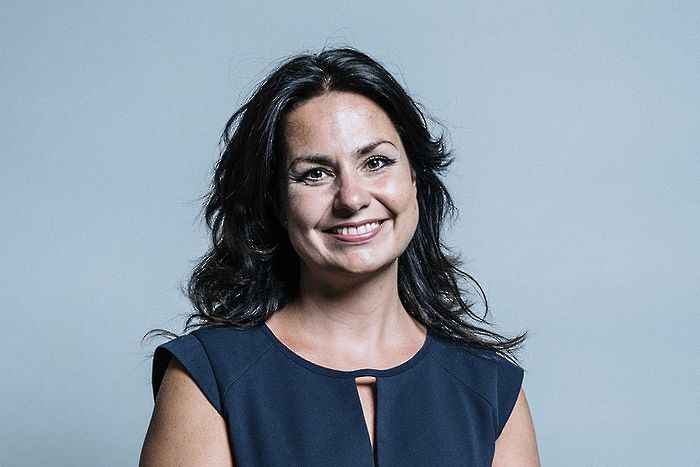Students on Brexit: ‘It seems like we’re never going to stop talking about it’
Love it or hate it-the government have wrangled an extension on Brexit until January 2020. This week, Oliver Rhodes and Sasi Valaiyapathi took to the streets to see how students feel about the current situation.

After over three years of debate, delay and incessant media coverage, yesterday was supposed to be the day the UK formally left the EU.
In the past week, however, Boris Johnson’s government returned from Brussels with a revised withdrawal agreement, the EU agreed to a “flextension” until January 2020 and Parliament authorised a General Election which will now be held on 12th December.
With the Brexit saga continuing to unfold in confusing and chaotic ways, Varsity approached dozens of Cambridge students to gauge their opinion on what’s been going on these past few weeks, and where the country is headed now.
“Everyone’s getting frustrated,″ says Francesca, an HSPS student at Downing. “I’d quite like to just leave now… and I don’t think a no deal would have been as bad as some people made out. There was a lot of scare-mongering.”
Brexit-weariness has indeed plagued most students, even if they don’t agree on what to do next. “It seems like we’re never going to stop talking about it, I’m confused and exhausted about the whole thing really,″ says Arthur, a second-year student at Magdelene.
“We should never have had the referendum in the first place,″ says another student.
Looking forward, however, whether to solve the issue with a second referendum proves a tough choice for many students. “We’re too far down the line for that,″ argues Olivia, a second-year at Sidney. “Normally I’d vote Liberal Democrat… but I’m not a fan of the party’s strategy on this,″ she says. Brexit is taking up “all the government’s energy and resources, stopping discussion about other things, like climate change, so let’s just get it out of the way.”
Both the undergraduate and postgraduate student unions formally endorse a People’s Vote. Thursday saw a demonstration in Market Square to revoke Article 50 in a seat which saw the Liberal Democrats win a sizeable victory in the recent EU elections. “Since [2016] loads of people have changed their minds,″ one student tells Varsity. “I see no value in the idea that it would be undemocratic because referenda aren’t binding,″ argues another.
“People were lied to far too much during the first one and even though that happens during most referendums and elections, this was off the charts. I think another vote is necessary now that the public has seen the negative impact the Brexit process has had on the UK for the last 3 years.” says one Physics student. Supporters of another referendum often cited changing demographics in addition to changing opinions, with many young voters now able to vote when they could not in 2016.
Many students, however, believe a second vote would only exacerbate current divisions. “For the first couple of years I held that Brexit was bad for the country, and that it doesn’t matter what the so-called will of the people was, however I’ve come round to the opinion that a second referendum would make Parliament politically bankrupt,” says Felix, a History and Politics student at Hughes Hall.
For Cyrus, a second-year at Magdelene, a future referendum should be between different forms of Brexit, not on whether to remain in the EU. “You can’t go and ask the same thing before it has happened. We’d just be more split.”
Another student agrees that another vote would be “a massive mistake” because it would undermine trust in the political system. “It would say to the millions who did vote to leave, often communities devastated by neoliberal policy from Thatcher to Cameron, that their vote doesn’t matter. This plays directly into the hands of people like Tommy Robinson and the far-right.”
While the majority of students Varsity spoke to had voted or intended to vote Remain, Varsity also reached out to students sympathetic to Brexit, many of whom felt frustrated about they way the process has unfolded since 2016.
One female student who would have voted Leave in 2016 tells Varsity that she agrees with the current government’s negotiating strategy. “I’m glad he [Boris Johnson] is trying to quicken the pace so that the country can focus on other things,″ she says.
Phoebe, a first-year at Corpus who would have voted to leave the EU, tells Varsity that while she agrees democracy should be “a continuous process”, “you can’t have another referendum just to avoid implementing the result of the first.” Much in concurrence with the government’s recent statements in Parliament, she argues that “parliamentarians have wilfully frustrated respecting the result of the referendum” and that “the Conservatives are the only party that actually want Brexit done.”
Some supporters of Remain were also sympathetic to the current government’s strategy. “I can see why Boris tried it [the prorogation],″ says one student. “Everyone wants it to be done and over with and no one else was doing anything,” argues another.
“It’s this perfect limbo of everyone being unhappy because 650 people have suddenly decided that they know more than the other 33 million,” says one Chemical Engineering student.
Many others however disagreed with the steps taken to ensure the UK’s exit by the end of October, especially the prorogation. “You don’t give a house less than two weeks to debate a deal which is the biggest constitutional change in 40 years”, says third-year student Emile. Some others decried the government’s attempt to blame current difficulties on parliamentarians, describing it as “unfair” and “disingenuous”.
Most of the EU students who spoke to Varsity were not especially worried about their position in the UK.
Rob, a King’s Phd student from the Netherlands, says that so far he has had “no fears for massive disruption due to Brexit” partly because “the university has been proactive in giving the latest updates on how Brexit will impact the university and its [international] students.”
“Brexit just feels so distant” says Lena, a first-year Linguistics student from Germany. “I don’t really have concerns because I know the university is looking after its students, for example tuition fees won’t increase.”
Niki, a second-year studying Chemical Engineering from Portugal, is confident that, whichever outcome, the government “can’t kick students out”, however he is concerned that “some students who need to do a year abroad don’t know if they’ll get their Erasmus funding.”
Alessandro Ceccarelli, President of the Graduate Union and originally from Italy, similarly praises the university but says the government has “lost credibility with EU students” with its lack of clarity on Brexit.
With a General Election due for December, engagement among Cambridge students seems higher than ever, especially among the majority of undergraduates who were too young to vote in 2016. Some indicated a desire to vote “tactically” in order to undermine Conservative majorities in each constituency.
According to the anti-Brexit group Best for Britain, tactical voting by pro-Remain voters could help swing support away from the Conservatives, who are currently polled to obtain a majority in December.
 News / Right-wing billionaire Peter Thiel gives ‘antichrist’ lecture in Cambridge6 February 2026
News / Right-wing billionaire Peter Thiel gives ‘antichrist’ lecture in Cambridge6 February 2026 News / John’s duped into £10m overspend6 February 2026
News / John’s duped into £10m overspend6 February 2026 News / Epstein contacted Cambridge academics about research funding6 February 2026
News / Epstein contacted Cambridge academics about research funding6 February 2026 News / Lucy Cav students go on rent strike over hot water issues6 February 2026
News / Lucy Cav students go on rent strike over hot water issues6 February 2026 News / Corpus FemSoc no longer named after man6 February 2026
News / Corpus FemSoc no longer named after man6 February 2026










